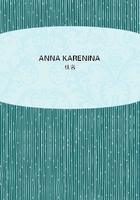
第167章
`But are they fully known?' Sergei Ivanovich put in with a subtle smile. `It is the accepted view now that real culture must be purely classical;but we see most intense disputes on each side of the question, and there is no denying that the opposite camp has strong points in its favor.'
`You are for the classics, Sergei Ivanovich. Will you take red wine?' said Stepan Arkadyevich.
`I am not expressing my own opinion of either form of culture,'
Sergei Ivanovich said, holding out his glass with a smile of condescension, as to a child. `I only say that both sides have strong arguments to support them,' he went on, addressing Alexei Alexandrovich. `My sympathies are classical from education, but in this discussion I am personally unable to arrive at a conclusion. I see no distinct grounds for classical studies being given a pre-eminence over scientific studies.'
`The natural sciences have just as great an educational value,'
put in Pestsov. `Take astronomy, take botany, or zoology, with its system of general principles.'
`I cannot quite agree with that,' responded Alexei Alexandrovich.
`It seems to me that one must admit that the very process of studying the forms of language has a peculiarly favorable influence on intellectual development. Moreover, it cannot be denied that the influence of the classical authors is in the highest degree moral, while, unfortunately, with the study of the natural sciences are associated the false and noxious doctrines which are the curse of our day.'
Sergei Ivanovich would have said something, but Pestsov interrupted him in his rich bass. He began warmly contesting the justice of this view.
Sergei Ivanovich waited serenely to speak, obviously with a convincing reply ready.
`But,' said Sergei Ivanovich, smiling subtly, and addressing Karenin, `one must allow that to weigh all the advantages and disadvantages of classical and scientific studies is a difficult task, and the question which form of education was to be preferred would not have been so quickly and conclusively decided if there had not been in favor of classical education, as you expressed it just now, its moral - disons le mot - antinihilist influence.'
`Undoubtedly.'
`If it had not been for the distinctive property of antinihilistic influence on the side of classical studies, we should have considered the subject more, have weighed the arguments on both sides,' said Sergei Ivanovich with a subtle smile, `we should have given elbowroom to both tendencies.
But now we know that these little pills of classical learning possess the medicinal property of antinihilism, and we boldly prescribe them to our patients.... But what if they had no such medicinal property?' he added his pinch of Attic salt.
At Sergei Ivanovich's little pills everyone laughed; Turovtsin in especial roared loudly and jovially, glad at last to have found something to laugh at - all he ever looked for in listening to conversation.
Stepan Arkadyevich had not made a mistake in inviting Pestsov.
With Pestsov intellectual conversation never flagged for an instant. Directly Sergei Ivanovich had concluded the conversation with his jest, Pestsov promptly started a new one.
`I can't agree even,' said he, `that the government had that aim.
The government obviously is guided by abstract considerations, and remains indifferent to the influence its measures may exercise. The education of women, for instance, would naturally be regarded as likely to be harmful, but the government opens schools and universities for women.'
And the conversation at once passed to the new subject of the education of women.
Alexei Alexandrovich expressed the idea that the education of women is apt to be confounded with the emancipation of women, and that it is only so that it can be considered dangerous.
`I consider, on the contrary, that the two questions are inseparably connected together,' said Pestsov; `it is a vicious circle. Woman is deprived of rights from lack of education, and the lack of education results from the absence of rights. We must not forget that the subjection of women is so complete, and dates from such distant ages, that we are often unwilling to recognize the gulf that separates them from us,' said he.
`You mentioned rights,' said Sergei Ivanovich, waiting till Pestsov had finished, `meaning the right of sitting on juries, of voting, of presiding at councils, the right of entering the civil service, of sitting in parliament....'
`Undoubtedly.'
`But if women, as a rare exception, can occupy such positions, it seems to me you are wrong in using the expression ``rights'. It would be more correct to say duties. Every man will agree that in doing the duty of a juryman, a witness, a telegraph clerk, we feel we are performing duties.
And, therefore, it would be correct to say that women are seeking duties, and quite legitimately. And one can but sympathize with this desire to assist in the general labor of man.'
`Quite so,' Alexei Alexandrovich assented. `The question, I imagine, is simply whether they are fitted for such duties.'
`They will most likely be perfectly fitted,' said Stepan Arkadyevich, `when education has become general among them. We see this...'
`How about the proverb?' said the Prince, who had a long while been intent on the conversation, his mocking little eyes twinkling. `Ican say it before my daughters: her hair is long, but her wit is short....'
`Just what they thought of the Negroes before their emancipation!'
said Pestsov angrily.
`What seems strange to me is that women should seek fresh duties,'
said Sergei Ivanovich, `while we see, unhappily, that men usually try to avoid them.'
`Duties are bound up with rights - power, money, honor; those are what women are seeking,' said Pestsov.
`Just as though I should seek the right to be a wet nurse, and feel injured because women are paid for the work, while no one will take me,' said the old Prince.